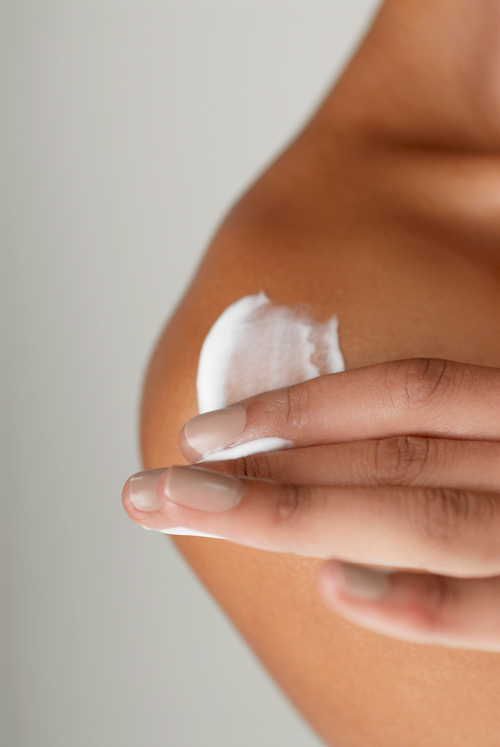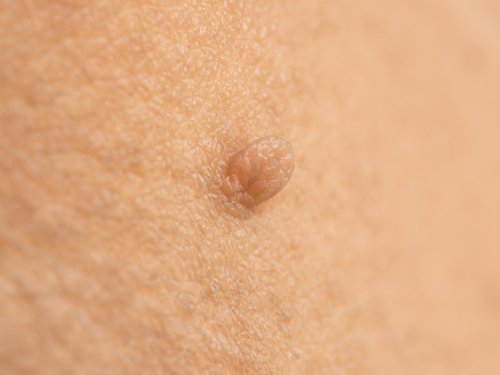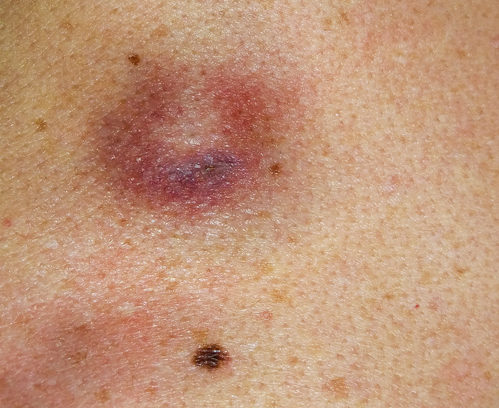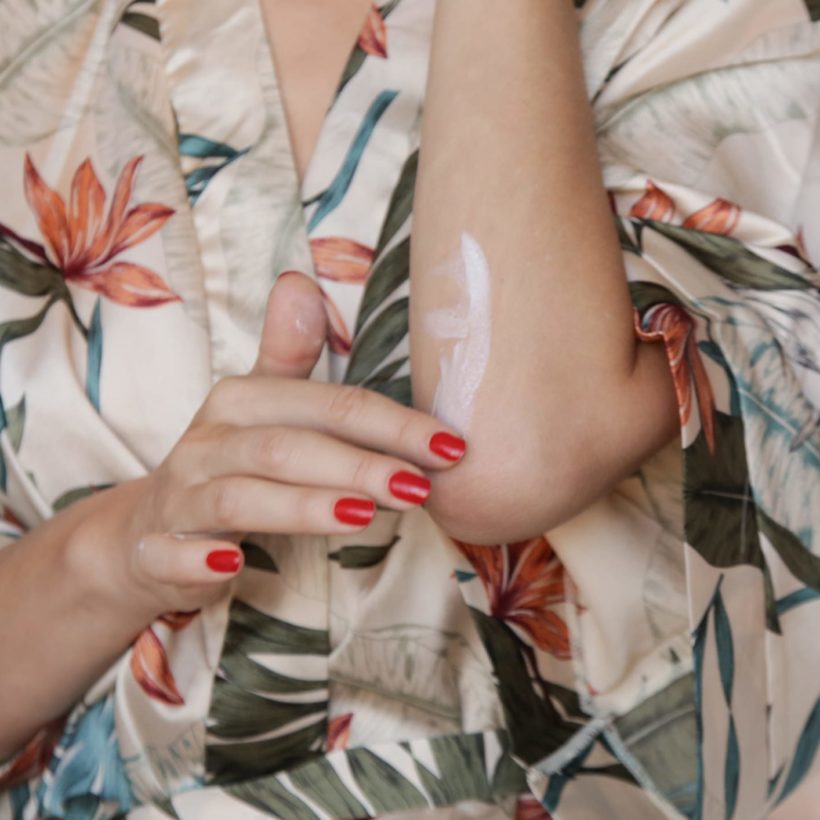I made it all the way up until week 34 of my pregnancy with a smooth, spotless stomach. Sure, my belly button popped out, but it still looked like a version of my body. Then, I started noticing these small, red-purple lines appearing near my hips. They soon spread to the bottom of my belly, and now, at 37 weeks, I have a handful along my left side. When I called my mom to complain, she reminded me that she, too, had stretch marks while carrying me — so she wasn’t surprised.

Not everything can be traced back to our genes when it comes to skincare — but some things, like those pesky stretch marks — are hereditary. While a genetic predisposition doesn’t mean you’ll develop a condition, it makes it more likely that you might. So, while you can blame your mom for some things — and my future daughter may very well do that one day — not everything is genetic.
Here, we spoke with dermatologists to debunk skincare genetic myths, including what is hereditary and what’s not.
Genetic: Eczema and Rosacea
When a person is diagnosed with eczema, it’s from a gene that also carries a predisposition for asthma and hay fever, explains Dr. Audrey Kunin, the founder of DERMAdoctor and the chief product officer of NovaBay Pharmaceuticals. Specifically, it’s a mutation in genes KIF3A, FLG, and CARD11. “Eczema may vary in intensity across family members, but the gene remains the same,” she continues. “Eczema-prone individuals lack protective barrier levels of ceramides and free fatty acids as well as immunological dysregulation.”
Another common skin condition that is both genetic and can be caused by your environment (weather, air quality, etc.) is rosacea, according to Dr. Marisa Garshick of MDCS dermatology. “While some people may have a genetic predisposition, for many people, rosacea will only come out or flare up in the setting of certain environmental triggers,” she adds. What does this mean? If your mom lives in a super-cold climate, she may experience way more breakouts than you do if you live in a zip code that’s sunny year-round. If you do travel to snowy mountains, you could notice symptoms of rosacea since you’re genetically disposed.
Not-genetic: Sensitized skin
Do you know the difference between sensitive skin and sensitized skin? It’s a subtle but important distinction to make. Sensitive skin is a skin type where your pores are susceptible to harsh ingredients and may easily become red or irritated. According to Dr. Garshick, sensitive skin is genetic. However, sensitized skin is not. Instead, it’s a skin condition that can be brought on by various factors, like prolonged exposure to the sun, damaging weather conditions, eating poorly for an extended period, etc. “Sensitized skin is more conditional and a temporary state of the skin, while sensitive skin can be a hereditary skin type,” she adds.

Genetic: Skin tags
Dr. Garshick says skin tags are common and can occur in anyone. She says these pesky flaps of skin are frequently found in areas of friction — such as the neck, the underarms and eyelids — and some people may be more susceptible to them than others based on their genes. If your mom or dad frequently had skin tags removed, there’s a chance you’ll need to do the same as you grow older.

Not genetic: All skin cancers

While certain skin cancers — particularly melanoma — can be considered genetic and be associated with an increased risk in family members, not all skin cancers are hereditary, according to Dr. Garshick. And it is possible to develop skin cancer even without a family history. “Specifically, basal cell carcinoma and squamous cell carcinomas may be related to cumulative sun exposure and as a result can occur in anyone, even if it doesn’t run in their genes,” she adds.
Genetic: Cystic acne
Those who suffer from painful, severe cystic acne will look for a solution to clear up their skin. And sadly, you can thank your genes for this type of frustrating skin ailment. As Dr. Kunin explains, cystic acne is often genetic and linked to higher circulating or sensitivity to blemish-triggering hormones. “These hormones stimulate the sebaceous glands to produce excess sebum that contributes to acne formation,” she says. A dermatologist will prescribe a medicine to balance hormones to fight the breakouts most of the time.
Not-genetic: Sunspots
Also called ‘lentigos,’ these brown patches are due to a lack of sun protection combined with excessive sun exposure. In other words: they aren’t because of your grandparents, but more so because of your choice to stay out in the sun than you should have. The same goes with melasma — also known as the ‘mask of pregnancy’ — caused by higher estrogen levels. These conditions are genetic.

We only recommend products we have independently researched, tested, and loved. If you purchase a product found through our links, Sunday Edit may earn an affiliate commission.







